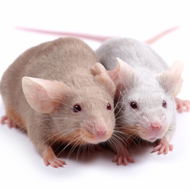
Scientist find part of the brain associated with fear from memories
Scientist have been able to switch off the part of the brain that forms associations of fear from memories.
In a study using mice, scientist at Columbia University in New York, identified neurons in the part of the brain called the hippocampus, that associate fear with bad memories.
The mice expressed fear after experiencing an unpleasant event and then being placed back in that same environment.
Scientists then switched off these neurons and the mice no longer showed any fear.
In their study, published in Science, the researchers said their findings could have implications in tackling conditions, such as post traumatic stress disorder.



 The Veterinary Medicines Directorate (VMD) is inviting applications from veterinary students to attend a one-week extramural studies (EMS) placement in July 2026.
The Veterinary Medicines Directorate (VMD) is inviting applications from veterinary students to attend a one-week extramural studies (EMS) placement in July 2026.